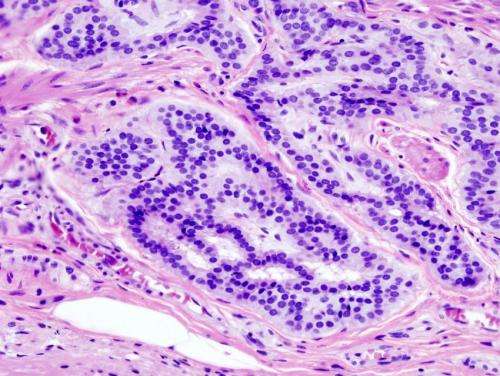First-in-class antibody mixture shows clinical activity against Tx-resistant, advanced colorectal cancer

Patients with advanced colorectal tumors without mutations in the RAS genes derive substantial benefit from anti-EGFR therapies; however, the disease eventually progresses, leaving these patients with few alternative therapeutic options. Over the last decade, some of the mechanisms driving resistance have been identified, but despite intensive research, treatment options available for patients have not improved, Tabernero said.
Sym004 is a 1:1 mixture in the same infusion bag of two antibodies that bind to different regions of the extracellular domain of EGFR, according toTabernero. Like the U.S. Food and Drug Administration (FDA)-approved anti-EGFR antibodies cetuximab and panitumumab, Sym004 antibodies block EGFR. However, the double-targeting of EGFR by Sym004 causes superior EGFR internalization and degradation, which is likely to provide better outcomes than cetuximab or panitumumab, he explained.
Tabernero and colleagues enrolled 62 patients to a phase I study; 20 patients with advanced solid epithelial tumors were enrolled to the dose-escalation phase of the study and received different doses of Sym004, ranging from 0.4 mg/kg to 12 mg/kg, administered weekly. The remaining 42 patients had metastatic colorectal cancer and had previously been treated with anti-EGFR antibodies with brief responses, and were enrolled to the dose-expansion phase of the trial. Patients in the dose-expansion cohort received weekly doses of 9 mg/kg or 12 mg/kg of Sym004.
Of the patients in the dose-expansion cohort, five (13 percent) had a partial response, and overall, 17 (44 percent) had some degree of tumor shrinkage during treatment with Sym004, according to Tabernero. The overall disease-control rate, which includes partial responses and stable disease, was 67 percent.
Tabernero said that the toxicity profile was consistent with the experience from FDA-approved anti-EGFR antibodies (grade 3 skin toxicity and low magnesium levels, among others) and was controlled with supportive care (topical and systemic antibiotics, and steroids), dose delays, and reductions.
In this research article, Tabernero and colleagues also discussed their preclinical experiments which helped them establish that Sym004 could make colorectal cancer cells overcome acquired resistance to cetuximab.
In an interview, Tabernero said, "This study represents one of the first examples of promising translation from preclinical findings to drug development and clinical activity against anti-EGFR antibody-resistant colorectal cancer. The significant antitumor activity of Sym004 in patients whose tumors have become resistant to anti-EGFR therapies suggests that some colorectal cancers that progress after treatment with cetuximab or panitumumab [anti-EGFR therapies] remain dependent on EGFR signaling."
















